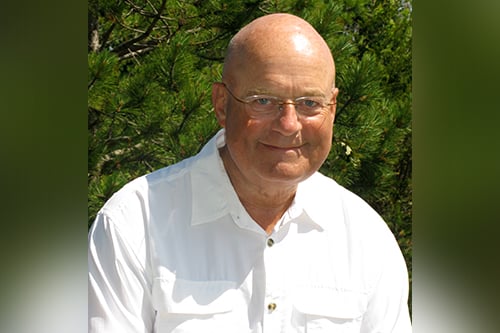

While some businesses in Canada have held on so far amid the coronavirus pandemic, one insurance expert sees more pain on the horizon, and is offering advice to brokers on navigating the incoming tide of challenges.
“There’s a bit of a time delay in the impact of COVID on the economy. I think government stimulus programs have granted a stay of execution for a number of businesses and individuals, so we’re concerned that there’s going to be a cash cliff, and that it would be hitting right around the fourth quarter of 2020,” said Rick Bauman (pictured), founder and head coach of the Intellectual Capital Coaching Corporation (iC3). “If that comes to fruition, there are going to be countless small businesses that are going to be out of business … and I am concerned that brokers are going to see shrinkage in policies in force because people are going to be getting rid of second vehicles, vacation properties, and scaling back their lifestyles.”
While it’s hard to predict exactly what’s coming down the pike, given the many uncertainties associated with the pandemic and how it will continue to unfold, as well as how the vaccines will impact the situation in Canada, one thing’s for sure: brokers need to prepare. The iC3 team is recommending that brokerages put planning on their weekly to-do lists, instead of only thinking about strategizing over the long-term, to remain flexible amid the current crisis.
“We strongly advocate that brokers have weekly what we call ‘top five’ meetings – where the leadership team individually identifies the five most important things they need to work on in the coming week to be consistent with the strategic plan,” explained Bauman.
Another challenge that brokers will need to overcome during this time is the urge to shift attention away from writing new business, as they juggle the hurdles presented by a hardening market and stressed economy. Rather, noted Bauman, this is the time when brokers need to figure out a way to continue offering their services to new prospects, and be able to do this more effectively than ever before to ensure that they can replace any lost business that they might see this year because of the economic impact of the pandemic.
“[Brokerages should be] stressing new business production, and making sure that producers are really producing and not just being defensive in protecting their books of business,” said Bauman.
For brokerages who want to succeed through 2021 and beyond, they also need to fight back the ITB virus, or the ‘I’m too busy virus,’ which arises from the need to focus solely on the day-to-day responsibilities that come with running a broking business. Bauman finds that when iC3 conducts a self-assessment with prospective clients, they tend to come out of that with key to-do items that can strengthen their business over the long-term, but often say that they’ll focus on dealing with these issues somewhere down the road.
“What we find is that day never comes,” said Bauman. After all, he noted, “I don’t remember the last time I had a broker say to me, ‘I’m sitting around with nothing to do. Have you got any ideas of things I might work on?’”
To deal with the challenge of working on the business and not just in it, brokers have to dedicate a concrete part of their schedule to the former task. That’s not an easy thing to do, especially in times of crisis, said Bauman, but working on the business consistently is going to be a crucial survival strategy.
He also added that this is the perfect moment for brokers to sell their businesses, for those who might have been considering moving on in the near-term.
“Valuation multiples have never been higher, so if a brokerage owner feels that they’re not up for the challenge of the next three to five years, the good news is that this is a great time to sell,” he told Insurance Business. “I urge brokers to make a choice and to not think they’re going to make a choice in a few months’ time, because that in and of itself is a choice. You need to be heading in a specific direction today, by either selling a business or determining that you’re going to be one of the survivors.”
